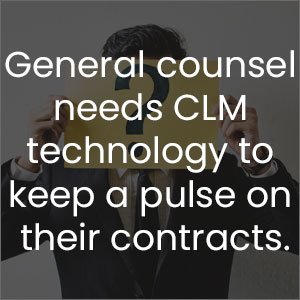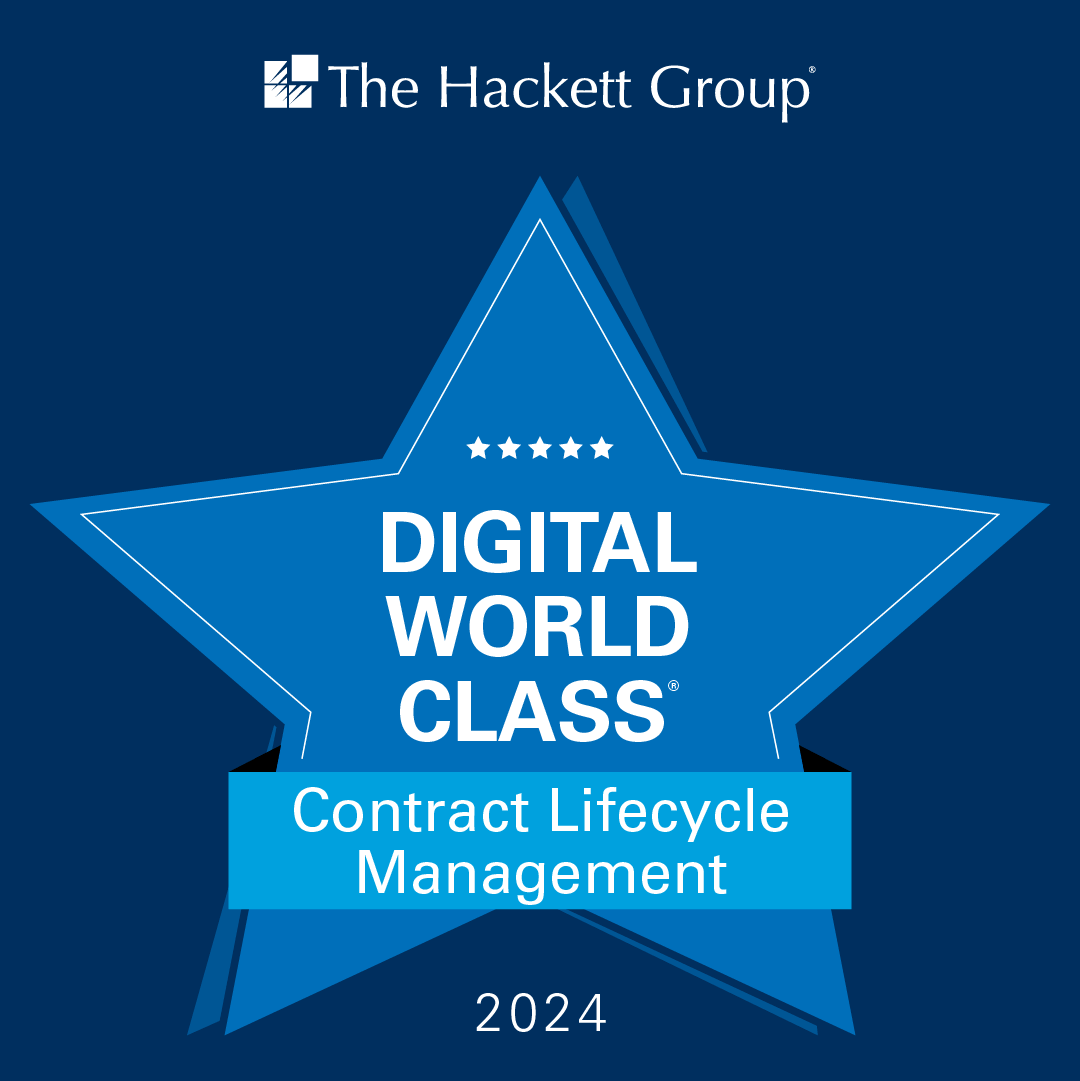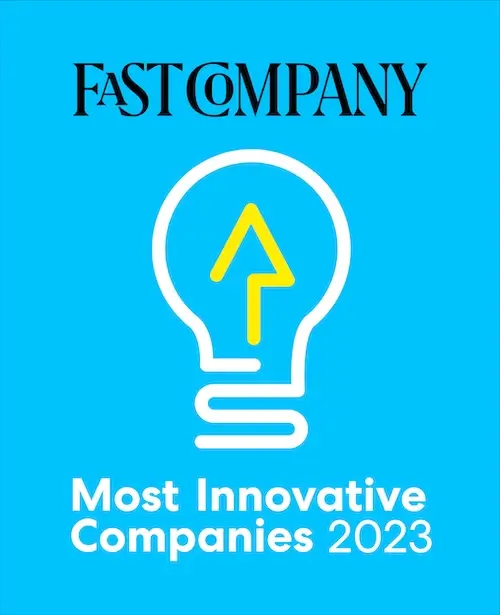To start, CLM refers to contract lifecycle management technology. Gartner defines contract lifecycle management as “a solution and the process to proactively manage a contract from initiation through aware (signature), compliance, renewal, and completion.” (p2, CLM Forecast 2018-2022, Gartner). Now – to succinctly answer the question – YES. Today’s general counsel needs CLM technology to keep up with the intensifying flurry of activities hitting corporate legal departments.
Legal teams handle an increasing number of contracts. There is always the pressure of time to speed up the contract’s initiation, review, re-review, consider compliance, liabilities, renewal clauses, and ultimately sign off to completion. It means dealing with complex legal issues, but turning it around faster. And, doing all this while holding to your standards, and maintaining consistency throughout potentially hundreds or even thousands of contracts.
For any mid-size or large company, can the chief legal officer really stay on top of their contracts without a system to help track it all? Across the hundreds or even thousands of contracts, how can you fully understand, manage or even fathom the full impact of risk? When the board of directors or senior managing partner asks the general counsel position about the limits of the financial obligation on a set of the past 400 contracts… can it be assessed within an hour or two? Or will it take closer to a week to prepare, after the data is long forgotten and no longer needed?
ENTER CONTRACT LIFECYCLE MANAGEMENT
Why the offices of the general counsel need CLM is that it makes contract life easier, more manageable, and keeps the business working in real-time. General counsel needs CLM technology to keep a pulse on their contracts.
HOW CLM MAKES CONTRACT MANAGEMENT EASIER
Let’s face it. Nobody wants a boring job. Corporate counsel shouldn’t be about pouring over hundreds of contracts on a moment’s notice or looking for particular legal clauses, auto-renewal periods, or financial limitations. This is the type of job that computers are ideally designed to serve up. Being the prime repository of all contracts makes the CLM an instant hit as the go-to source for such questions. Best of all, it keeps your in-house legal team focused on providing the company with higher-value services. In effect, it makes the job of in-house counsel easier. It now becomes a matter of doing an electronic search (instantaneous), rather than laborious and time-consuming.
Better yet, use the artificial intelligence (AI) engine built into good CLM’s to do ‘like phrase’ searches, or search on intent. Then, focus your time and effort on reviewing and making sense of the results.
HOW CLM MAKES CONTRACT MANAGEMENT MANAGEABLE
Manage-ability is important to human resources contracts, those for mergers and acquisitions, intellectual property agreements, sales sided ones, purchase agreements, and supply or transportation contracts. The simple reason why general counsel needs CLM technology is to keep a pulse on their contracts. You need to know where things stand at any given time. And this is across dozens, hundreds, and even thousands of agreements. It is about having a clear picture and oversight of the risks and obligations across the varied practice areas.
You won’t necessarily get this from a procurement centric solution. These are plentiful. Rather, your needs are to be able to review all your contracts within minutes using an intelligent system. Also, one that serves up a snapshot of your entire agreement portfolio with intelligent notables.
Making your world of agreements manageable means you can focus on providing guidance and legal advice – rather than manually searching for clauses.
CONTRACT ANALYSIS IN REAL-TIME
Speed is one of the greatest complaints dogging many legal teams. Speed is one of the greatest complaints dogging many legal teams. Ask for feedback on the financial obligations across your contracts, and you know you are in for a lengthy effort. In this regard, having visibility and a quick broad picture of your agreement details is an important consideration in today’s legal market. Leadership here means having visibility to your contractual commitments. But, speed is the critical part. Full visibility that requires weeks of people power, misses the boat!
Take the reverse perspective for a moment. Imagine that you now have an AI engine that has full visibility to all your contracts, and can review them in an instant. Then, it provides you with that snapshot of your financial commitments, full liabilities, outliers, and so forth. That’s contract analysis in real-time.
NEXT STEP – THE ‘FUN’ ENVELOPE
Did you ever imagine that law and regulation work could be fun? It’s not the word that most people (even professionals) would use. But it can be! The office of the general counsel need CLM technologies to:
- spend more time analyzing your contracts
- find discrepancies
- maintain consistency
- discover trends and facts in your contract data
This discovery and analytical work is the ‘fun’ stuff of contract management!
SO, DOES THE GENERAL COUNSEL NEED CLM TECH?
Emphatically – the answer is YES. In fact, EVERY office of the general counsel needs CM software solutions to make the whole subject of contract management a higher value activity within the organization. It isn’t about attacking the problem with brute force, anymore. It’s about using CLM technology wisely to improve your contracting speed and impact on the organization.
This makes your team an even greater value and keeps you focused on providing good counsel, rather than grinding labor. Check out our Contract Management Primer for more information to help you get started.
Author:

Charles Dimov
Connect with us on Linkedin











